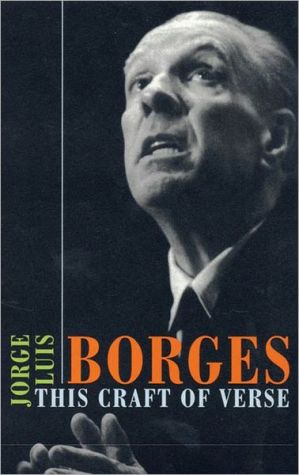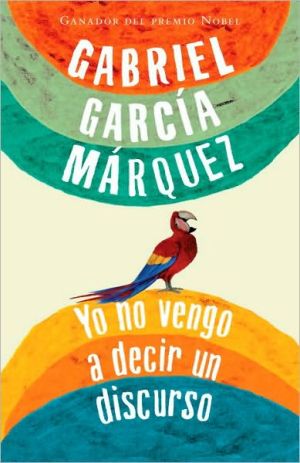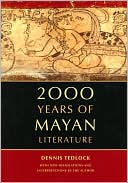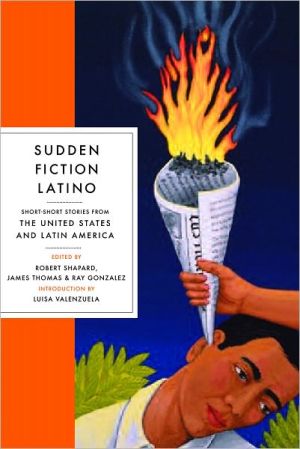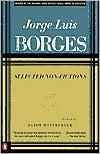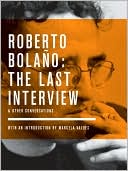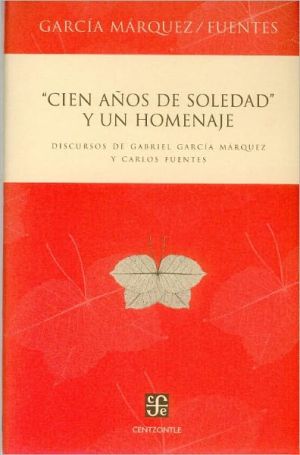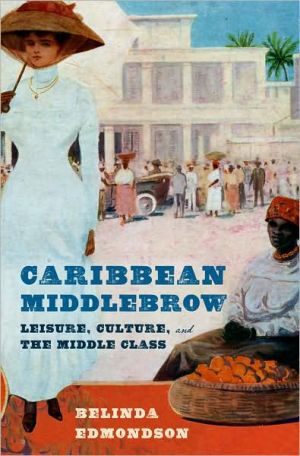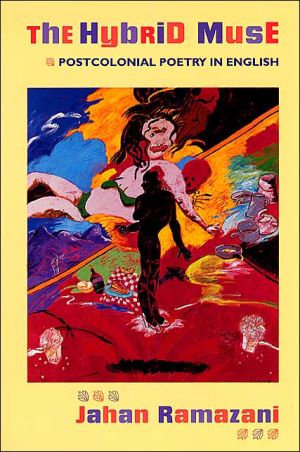This Craft of Verse
Available in cloth, paper, or audio CD\ Through a twist of fate that the author of Labyrinths himself would have relished, these lost lectures given in English at Harvard in 1967-1968 by Jorge Luis Borges return to us now, a recovered tale of a life-long love affair with literature and the English language. Transcribed from tapes only recently discovered, This Craft of Verse captures the cadences, candor, wit, and remarkable erudition of one of the most extraordinary and enduring literary...
Search in google:
"The central fact of my life has been the existence of words and the possibility of weaving those words into poetry." Jorge Luis Borges, This Craft of Verse These are the six Norton Lectures that Jorge Luis Borges delivered at Harvard University in the fall of 1967 and spring of 1968. The recordings, only lately discovered in the Harvard University Archives, uniquely capture the cadences, candor, wit, and remarkable erudition of one of the most extraordinary and enduring literary voices of our age. Through a twist of fate that the author of Labyrinths himself would have relished, the lost lectures return to us now in Borges own voice. Born in 1899, Borges was by this time almost completely blind (only a single color— yellow, "the color of the tiger"— remained for him), and thus addressed his audience without the aid of written notes. Probably the best-read citizen of the globe in his day, he draws on a wealth of examples from literature in modern and medieval English, Spanish, French, Italian, German, Greek, Latin, Arabic, Hebrew, and Chinese, speaking with characteristic eloquence on Plato, the Norse kenningar, Byron, Poe, Chesterton, Joyce, and Frost, as well as on translations of Homer, the Bible, and the Rubáiyát of Omar Khayyám. Though his avowed topic is poetry, Borges explores subjects ranging from prose forms (especially the novel), literary history, and translation theory, to philosophical aspects of literature in particular and communication in general. Throughout, Borges tells the very personal story of his lifelong love affair with the English language and its literature, ancient and modern. In each lecture, he gives us marvelous insights into his literary sensibility, tastes, preoccupations, and beliefs. Whether discussing metaphor, epic poetry, the origins of verse, poetic meaning, or his own "poetic creed," Borges gives a performance as entertaining as it is intellectually engaging. A lesson in the love of literature and language, this is a sustained personal encounter with a literary voice for whom the twentieth century will be long remembered.New YorkerIf few writers in history have been as prodigiously learned as Borges, certainly none wore their learning so lightly or humbly...[The lectures] display the eloquence and erudite, offhand wit familiar from his writings as well as a charming, plainspoken modesty. Ostensibly about poetics, the talks were an occasion for Borges to review his lifelong relationship with literature, including his passion for English.
1. The Riddle of Poetry2. The Metaphor3. The Telling of the Tale4. Word-Music and Translation5. Thought and Poetry6. A Poet's CreedNotes"Of This and That Versatile Craft"by Calin-Andrei MilhailescuIndex
\ From Barnes & NobleOur Review\ The Marvelous Borges\ Has another writer written to greater effect with fewer words? Whether in the form of the short story, essay, or poem, Jorge Luis Borges routinely performed astonishing turns of imagination in the length of a spare handful of pages. Borges's writings are models of succinct power; by temperament and by artistic ambition, he was a minimalist, given to working his wonders on the smallest scale possible. A master of fiction, Borges never published a novel -- or even, it seems, felt the lure of attempting one. He professed a heartfelt conservative piety for the older literary forms, for the saga and epic, the lyric and tale, but he made radically inventive uses of the traditional forms in his own literary labors. \ Borges possessed an uncommon complement of gifts. He was capable of launching startling, even unnerving flights of cerebral fantasy or metaphor but owned a first-rate mind and a critical intelligence entirely at ease with the metaphysical abstractions of the philosophers and theologians. All the same, in his intellectual bearing Borges was a skeptic, critical of but not disparaging or cynical toward the truth claims of systematic philosophical or religious thought. He was at once a genuine artist and a judicious, sympathetic critic.\ The posthumous publication of This Craft of Verse, Borges's 1967 Norton Lectures, reacquaints us with his splendid critical faculties. The volume is a welcome gift, too, reminding us of Borges's generous insistence on identifying with his fellow readers, who are ever ready to be transported by their love for literature. (Harvard University Press scheduled release of the remastered recordings for the fall of 2000.) Enough cause, then, to celebrate the recent discovery of these long-stored and forgotten tape recordings of lectures delivered at Cambridge more than three decades ago. By the late 1960s, Borges was quite blind and incapable of consulting notes when delivering an address. The lectures transcribed and collected here -- with their frequent quotations from the European languages, both ancient and modern -- were delivered extemporaneously, performances made possible by Borges's own powers of recollection (which were, it need hardly be said, formidable).\ In life and in literary manner Borges was a cosmopolitan, his range of reference almost inexhaustibly wide. His reading embraced Homer and Virgil, the Icelandic sagas and Beowulf, Chaucer and Milton, Rabelais and Cervantes, Kafka and Joyce. This Craft of Verse addresses issues central to the art of poetry: essential metaphors, epic poetry, the origins of verse, and poetic meaning. The lectures conclude with a statement of Borges's own "poetic creed." This slim but profound volume, however, ranges much farther afield. Borges serves up intriguing asides on the novel, on literary criticism and history, and on theories of translation. Ultimately, his comments touch on the largest questions raised by literature and language and the thornier puzzles of human communication.\ The lectures convey Borges's evident delight in English and his eloquence and ease in the language, even when facing a distinguished audience of native English speakers. But perhaps that is not so surprising, after all, for Borges carried on a lifelong love affair with the English language and the literatures of the British Isles and North America. His parents, who were fluent in English, introduced Borges to the language when he was a young boy, and Borges was allowed the run of his father's extensive library of English classics. Among the bookshelves of his father's study he first encountered authors he would admiringly cite over a long literary life: Wells and Kipling and Chesterton and Shaw, to name only a few. And the study of Old English became a hobby to which Borges remained passionately devoted until his death. The English language he counted as his second (and perhaps even preferred) home.\ Since the 1960s, when the then relatively obscure Buenos Aires writer was first introduced to English-speaking readers in translations of the classic Ficciones and the anthology Labyrinths, it has been apparent that Borges survives the ordeal of translation without obvious loss. His power remains intact on the page. This he owes to the virtues of his prose style, to the elegant simplicity and naturalness that, as the transcribed Norton Lectures demonstrate, were indistinguishable from the man. Borges's style is classical: concise, understated, cleanly cadenced, strict in its devotion to the old-fashioned values of clarity and logical order. Whether in his native Spanish or in his adopted English, Borges is a writer and lecturer who impresses us with his singular intellectual wit, charm, and refinement.\ This Craft of Verse makes an exquisite addition to a distinguished series and offers, moreover, invaluable insights into the mind and work of a true modern master. Between its covers, this small book holds the pleasures of the modest, warm voice of a writer who stands unquestionably with the strongest literary talents of the 20th century.\ --Gregory Tietjen, Academic & Scholarly Editor\ \ \ \ \ \ Boston GlobeThese newly released transcripts display a literary giant, managing from beneath heavy academic robes to keep the spryness and serendipity of literature alive...Here Borges daydreams aloud, and the result is wonderfully disarming.\ — Carlin Romano\ \ \ \ British Bulletin of PublicationsBorges puts you at ease and enchants you from the word go with his ability to get you thinking through a range of topics...This is perhaps ideal reading, in that it consists of short concise chapters that amuse, challenge and make you review the way you look at literature, translation, metaphors, art, writing, and indeed Life and Death.\ \ \ \ \ \ Financial TimesThe first lecture, 'The Riddle of Poetry', begins with Borges, ever humble, apologising. 'I have only my perplexities to offer you,' he says. Confidently pulling examples from De Quincey, Keats and Whitman to Plato and the Koran, Borges builds a case that poetry is around us and that beauty lies in the freshness of it...After moments of erudition and great beauty, Borges ends his 43-minute lecture humbly, excusing it as 'fumbling and awkward'—a view not shared by the applauding audience. Hearing them I felt I was there, in that vast auditorium more than 30 years ago. 'The Metaphor', the second lecture, is more playful and looser, as Borges wonders why people use the same stock metaphors when 'every word is a dead metaphor—this statement, of course, is a metaphor'. This feeds naturally into discussing the epic in 'The Telling of the Tale'. This lecture is Borges's call to action...Lectures four and five, 'Word-Music and Translation' and 'Thought and Poetry', given the following spring, are the most academic of the series. Borges speaks with great vigour on the problems of verse translation and the form and source of poetry...It is the final lecture, however, that is the most intriguing. In 'A Poet's Creed' Borges traces his development as a writer from the age of seven, in his father's library, and delves into the sources of his own poetry...The greatest joy in this last lecture comes from Borges himself. In the others he was erudite and intriguing but here he is also witty and puckish.\ — Paul Sullivan\ \ \ \ \ \ Miami HeraldReaders who fret they don't 'get' everything—'significant' readers with no allowance for sound, rhythm, revelation—would benefit from Jorge Luis Borges' [lectures]...Even in these scholarly lectures, given without notes...there is so much assumption and conjecture, there are so many gaps to fill, that Borges seems to be creating at once the authors and the ideas and the texts he's quoting...But there is also in This Craft of Verse the small pleasure of watching a wordsmith seek the joy of minutiae, the nitty-gritty of lex.\ — Orlando Aloma\ \ \ \ \ \ New York Times Book ReviewIn This Craft of Verse, [Borges] discusses some of his favorite texts, conducting a literary journey that began in his father's library in Buenos Aires...Borges's ultimate gift is his unwavering belief in the world of dreams and ideas, the sense that life is 'made of poetry.'\ — Micaela Kramer\ \ \ \ \ \ New YorkerIf few writers in history have been as prodigiously learned as Borges, certainly none wore their learning so lightly or humbly… [The lectures] display the eloquence and erudite, offhand wit familiar from his writings as well as a charming, plainspoken modesty.\ \ \ \ \ \ Philadelphia InquirerIf any writer could publish from the grave, you'd expect it to be Borges: master fabulist, patron of paradox, imaginative rebel, gentle tour guide to life's labyrinths. By a kind of librarian's magic, long-lost tapes of the great Argentine poet and short-story writer's 1967-68 Norton Lectures at Harvard turned up a few years ago in a vault. Now...these newly released transcripts display a literary giant, managing from beneath heavy academic robes to keep the spryness and serendipity of literature alive...An appealing aspect of these meditations is Borges' humility, always distinctive even after he became one of the world's most esteemed high-cultural figures...His views will delight.\ — Carlin Romano\ \ \ \ \ \ Providence Sunday JournalFew have dedicated themselves to literature with the purity of Jorge Luis Borges, so the discovery of the text of his Harvard University Norton Lectures for 1967-68, now published as This Craft of Verse, is cause for celebration. Common sense and radical insight flow in equal measure here: This Craft of Verse will inspire young and old alike to follow the muses. And now, more than 30 years later, one can actually listen to the lectures: in a 4-CD set, the words of the master come thrillingly alive in his own voice.\ — Tom D'Evelyn\ \ \ \ \ \ Rain TaxiWhat if one of the giants of twentieth century literature rose from the dead and told you how he read and thought about poetry? The closest you may come to such a living-room epiphany is This Craft of Verse...a set of allocutions that, as one can hear on these four discs, delighted as much as dazzled their audience...Like reading his work, listening to Borges offers the opportunity to think, muse, and marvel...The chance to be in the auditorium while the nearly blind librarian of Babel speaks from his heart is a technological wonder that should not be missed.\ — Eric Lorberer\ \ \ \ \ \ Review of Contemporary FictionWhether Borges's topic is a metaphor, epic narrative, or the nature of poetry, his basic aim is to reproduce the experience of wonder that poetry inspires. Accordingly, he shies away from poetic theories and instead allows his examples and personal impressions to speak for themselves the value of these lectures lies in their frequent success at conveying the passions and joys in the experience of artfully arranged words.\ — Thomas Hove\ \ \ \ \ \ The GuardianAnything written by Borges glows...with an unearthly light that transforms the world into a plushly furnished drawing room crammed with knicknacks and dusty, leather-bound volumes of arcana...Almost every casual aside from Borges suggests a book of its own; this one is a wondrously limpid testament to the pleasures of reading.\ — Steven Poole\ \ \ \ \ \ Translation ReviewThe lectures are immediate, intimate, and timeless, the texts retaining the highly personal flavor of Borges's original addresses Each lecture is followed by notes identifying and expanding on the rich allusions and illustrations employed in the text.\ \ \ \ \ \ Washington Post Book WorldJorge Luis Borges is inarguably the most influential Latin-American essayist and short-story writer of our time. To spend a few hours in [his] company, even on the page, is a civilized entertainment not to be missed...[Borges] emphasizes the power of poetry to work its magic...I would have given a lot to have been at Harvard in the audience when this courtly man of letters looked "upward with gentle and shy expression on his face, seeming to materially touch the world of the texts" and spoke about the poems and books he loved most.\ — Michael Dirda\ \ \ \ \ \ www.hermenaut.comWhat's most astonishing about these previously uncollected essays...is that for all their complexity and elusiveness they are oral performances. While Borges's blindness is a major figure in his writing, the breadth and density of his rhetorical web obscures the fact that he has no notes to read, that he is calling these texts up from the inexhaustible abyss of his memory...In his decomposition of genres and styles, Borges provokes language to express this immanent word-magic, knitting his own pronouncements together with the primordial force of oral composition. Borges speaks on metaphor, bringing the tangled, sensuous allegories of San Juan de la Cruz into contact and concert with the cold, salty kennings of the Norse Eddas. He discusses translation with freshness and an uncanny sensitivity to the ligatures among the languages; he considers the narrative arc and the transformation of thought into poetry...As editor Calin-Andrei Mihailescu puts it in his graceful afterword to this volume, 'Literature,' for Borges, 'was a mode of experience.'\ — Matthew Battles\ \ \ \ \ \ Carlin RomanoIf any writer could publish from the grave, you'd expect it to be Borges: master fabulist, patron of paradox, imaginative rebel, gentle tour guide to life's labyrinths. By a kind of librarian's magic, long-lost tapes of the great Argentine poet and short-story writer's 1967-68 Norton Lectures at Harvard turned up a few years ago in a vault. Now...these newly released transcripts display a literary giant, managing from beneath heavy academic robes to keep the spryness and serendipity of literature alive...An appealing aspect of these meditations is Borges' humility, always distinctive even after he became one of the world's most esteemed high-cultural figures...His views will delight.\ \ \ \ \ Eric LorbererWhat if one of the giants of twentieth century literature rose from the dead and told you how he read and thought about poetry? The closest you may come to such a living-room epiphany is This Craft of Verse...a set of allocutions that, as one can hear on these four discs, delighted as much as dazzled their audience...Like reading his work, listening to Borges offers the opportunity to think, muse, and marvel...The chance to be in the auditorium while the nearly blind librarian of Babel speaks from his heart is a technological wonder that should not be missed.\ \ \ \ \ Matthew BattlesWhat's most astonishing about these previously uncollected essays...is that for all their complexity and elusiveness they are oral performances. While Borges's blindness is a major figure in his writing, the breadth and density of his rhetorical web obscures the fact that he has no notes to read, that he is calling these texts up from the inexhaustible abyss of his memory...In his decomposition of genres and styles, Borges provokes language to express this immanent word-magic, knitting his own pronouncements together with the primordial force of oral composition. Borges speaks on metaphor, bringing the tangled, sensuous allegories of San Juan de la Cruz into contact and concert with the cold, salty kennings of the Norse Eddas. He discusses translation with freshness and an uncanny sensitivity to the ligatures among the languages; he considers the narrative arc and the transformation of thought into poetry...As editor Calin-Andrei Mihailescu puts it in his graceful afterword to this volume, 'Literature,' for Borges, 'was a mode of experience.'\ \ \ \ \ Micaela KramerIn This Craft of Verse, [Borges] discusses some of his favorite texts, conducting a literary journey that began in his father's library in Buenos Aires...The unhurried flow and warmth of these talks produce a sense of intimacy, Borges's enjoyment infecting the audience...Borges's ultimate gift is his unwavering belief in the world of dreams and ideas, the sense that life is "made of poetry.\ \ \ \ \ Michael DirdaJorge Luis Borges is inarguably the most influential Latin-American essayist and short-story writer of our time. To spend a few hours in [his] company, even on the page, is a civilized entertainment not to be missed...[Borges] emphasizes the power of poetry to work its magic...I would have given a lot to have been at Harvard in the audience when this courtly man of letters looked "upward with gentle and shy expression on his face, seeming to materially touch the world of the texts" and spoke about the poems and books he loved most.\ \ \ \ \ New YorkerIf few writers in history have been as prodigiously learned as Borges, certainly none wore their learning so lightly or humbly...[The lectures] display the eloquence and erudite, offhand wit familiar from his writings as well as a charming, plainspoken modesty. Ostensibly about poetics, the talks were an occasion for Borges to review his lifelong relationship with literature, including his passion for English.\ \ \ \ \ Orlando AlomaReaders who fret they don't 'get' everything—'significant' readers with no allowance for sound, rhythm, revelation—would benefit from Jorge Luis Borges' [lectures]...Even in these scholarly lectures, given without notes...there is so much assumption and conjecture, there are so many gaps to fill, that Borges seems to be creating at once the authors and the ideas and the texts he's quoting...But there is also in This Craft of Verse the small pleasure of watching a wordsmith seek the joy of minutiae, the nitty-gritty of lex.\ \ \ \ \ Paul SullivanThe first lecture, 'The Riddle of Poetry', begins with Borges, ever humble, apologising. 'I have only my perplexities to offer you,' he says. Confidently pulling examples from De Quincey, Keats and Whitman to Plato and the Koran, Borges builds a case that poetry is around us and that beauty lies in the freshness of it...After moments of erudition and great beauty, Borges ends his 43-minute lecture humbly, excusing it as 'fumbling and awkward'—a view not shared by the applauding audience. Hearing them I felt I was there, in that vast auditorium more than 30 years ago. 'The Metaphor', the second lecture, is more playful and looser, as Borges wonders why people use the same stock metaphors when 'every word is a dead metaphor—this statement, of course, is a metaphor'. This feeds naturally into discussing the epic in 'The Telling of the Tale'. This lecture is Borges's call to action...Lectures four and five, 'Word-Music and Translation' and 'Thought and Poetry', given the following spring, are the most academic of the series. Borges speaks with great vigour on the problems of verse translation and the form and source of poetry...It is the final lecture, however, that is the most intriguing. In 'A Poet's Creed' Borges traces his development as a writer from the age of seven, in his father's library, and delves into the sources of his own poetry...The greatest joy in this last lecture comes from Borges himself. In the others he was erudite and intriguing but here he is also witty and puckish.\ \ \ \ \ Steven PooleAnything written by Borges glows...with an unearthly light that transforms the world into a plushly furnished drawing room crammed with knicknacks and dusty, leather-bound volumes of arcana...Almost every casual aside from Borges suggests a book of its own; this one is a wondrously limpid testament to the pleasures of reading.\ \ \ \ \ Tom D'EvelynFew have dedicated themselves to literature with the purity of Jorge Luis Borges, so the discovery of the text of his Harvard University Norton Lectures for 1967-68, now published as This Craft of Verse, is cause for celebration. Common sense and radical insight flow in equal measure here: This Craft of Verse will inspire young and old alike to follow the muses. And now, more than 30 years later, one can actually listen to the lectures: in a 4-CD set, the words of the master come thrillingly alive in his own voice.\ \ \ \ \ Publishers WeeklyThe Norton lectures at Harvard retain their prestige, even though the annual speakers rarely achieve the general interest of such past invitees as Igor Stravinsky and Leonard Bernstein. Ten years ago the venerable Ashbery (Your Name Here; Forecasts, July 24) returned to his undergraduate alma mater to give the customary six lectures, here retouched and presented with documentation. They deal with "certifiably minor" writers whom Ashbery, as a self-confessed nonscholar, feels more at ease in discussing: John Clare, Thomas Lovell Beddoes, Raymond Roussel, John Wheelwright, Laura Riding, and David Schubert. He relies heavily on the lives of the arid Boston Brahmin poet Wheelright and depression-era American Schubert for entree into their work, and, in the case of all the writers, liberally invokes secondary sources. The lectures themselves are unlikely to raise strong objections or reapprisals, as the Schubert particularly seems designed to do, but Ashbery's fans will appreciate a look into his reading. Borges's lectures from 1967-68, posthumously transcribed, retread familiar critical territory for the poet and maker of masterly Ficciones. Although titles like "The Riddle of Poetry," "The Telling of the Tale," and "Thought and Poetry," hold abstract promise, these are the sort of musings on literature that Borges carefully kept out of his diamondlike stories but allowed into much of his critical prose: wistful, retro, and slightly befuddled, such as when Borges cites The Arabian Nights in the middle of a paragraph about Jewish mysticism or calls Oscar Wilde "a writer for boys." The stilted afterword by Mihailescu, a professor of modern languages at the University of Western Ontario, doesn't help. The delay in the issuing of these two books already boded poorly; their release now seems perfunctory. (Oct.) Copyright 2000 Cahners Business Information.\ \ \ \ \ Library JournalFor Borges (1899-1986), the central fact of life was the existence of words and their potential as building blocks of poetry. In this series of six long-forgotten lectures given at Harvard more than 30 years ago, he insists that reading (in English, primarily) gave him more pleasure than writing. Most of his examples are taken from English-speaking writers, such as Shakespeare, Keats, Byron, Whitman, and Frost. Borges developed a passion for the study of Old English, with its abundant metaphors, harsh beauty, and deep feeling (though not, he admits, for its deep thought). He dislikes the history of literature, which he feels demeans individual works, and he is generally wistful for a future when we are no longer overburdened by history. He champions the primacy of storytelling and prefers the epic to the novel, which he finds "padded." He also argues that one of the great poverties of our time is that we no longer believe in happiness and success and that happy endings seem commercial or staged. Some of his ideas are quirky, but it's still a privilege to have access to one of the most distinctive literary voices of the century. Recommended.--Jack Shreve, Allegany Coll. of Maryland, Cumberland Copyright 2000 Cahners Business Information.\\\ \ \ \ \ Myla GoldbergThe unhurried flow and warmth of these talks produce a sense of intimacy, Borges's enjoyment infecting the audience, to whom he generously gives credit for the success of these lectures, seeing this (like writing) as a collaboration. Borges's ultimate gift is his unwavering belief in the world of dreams and ideas, the sense that life is ''made of poetry. Poetry is not alien -- poetry is, as we shall see, lurking round the corner. It may spring on us at any moment.'' \ —New York Times Book Review\ \ \ \ \ New YorkerIf few writers in this century have been as prodigously learned as Borges, certainly none wore their learning so lightly or humbly. A series of taped lectures given at Harvard in 1967 but only recently transcribed, display the eloquence and erudite, offhand wit familiar from his writings as well as a charming plainspoken modesty.\ \ \ \ \ Kirkus ReviewsAn elegant and deftly woven five-part lecture series that uses philosophic, etymological, and personal inquiry to offer an erudite and coherent exposition on the power and limitations of language with regard to the crafting of poetry.\ \
